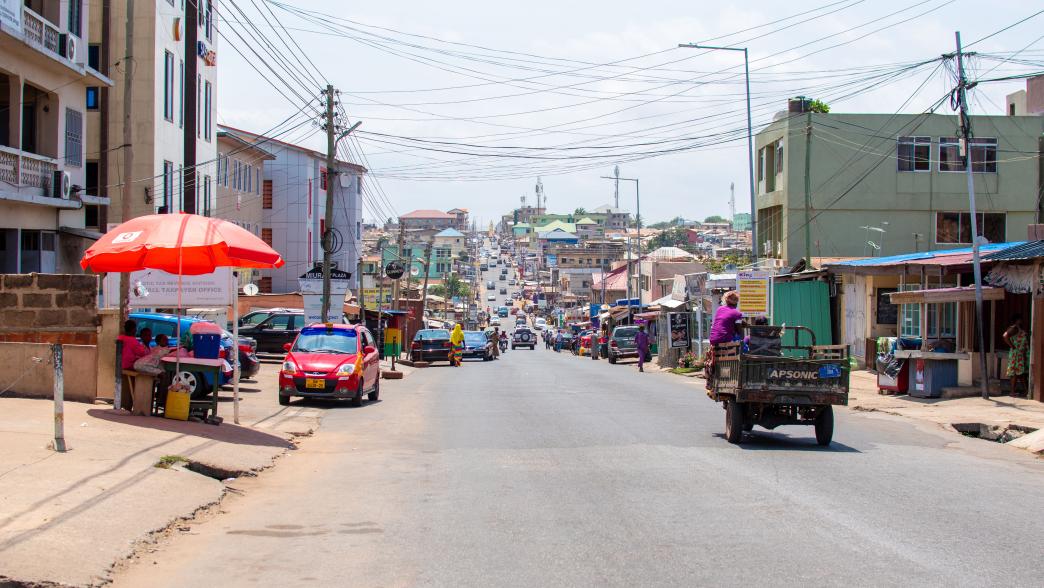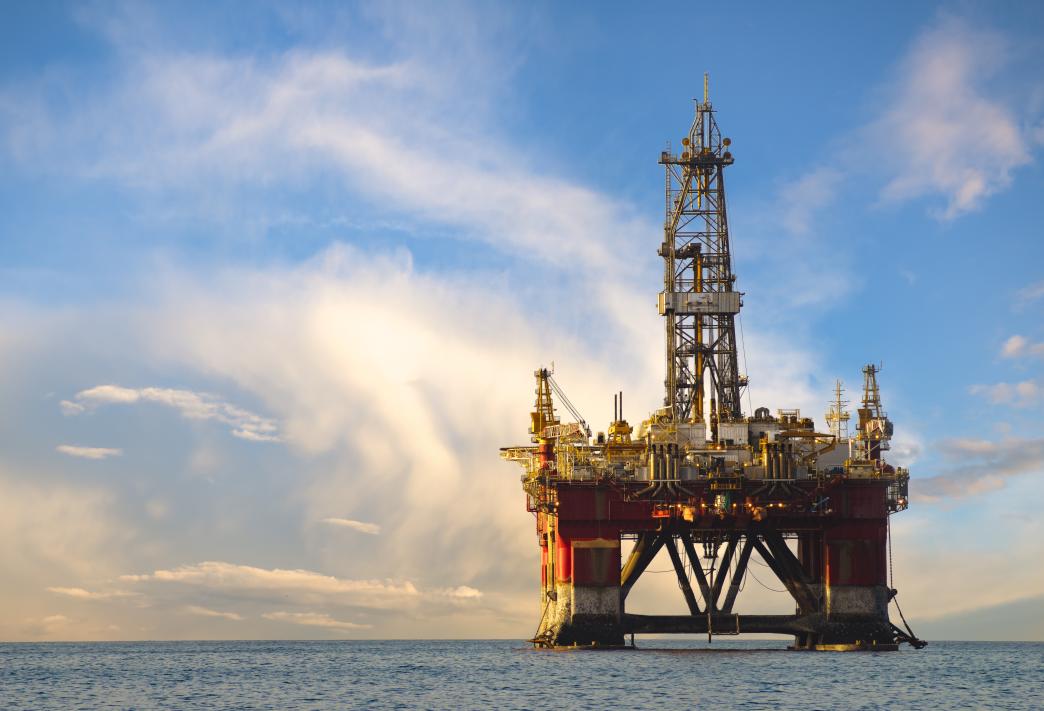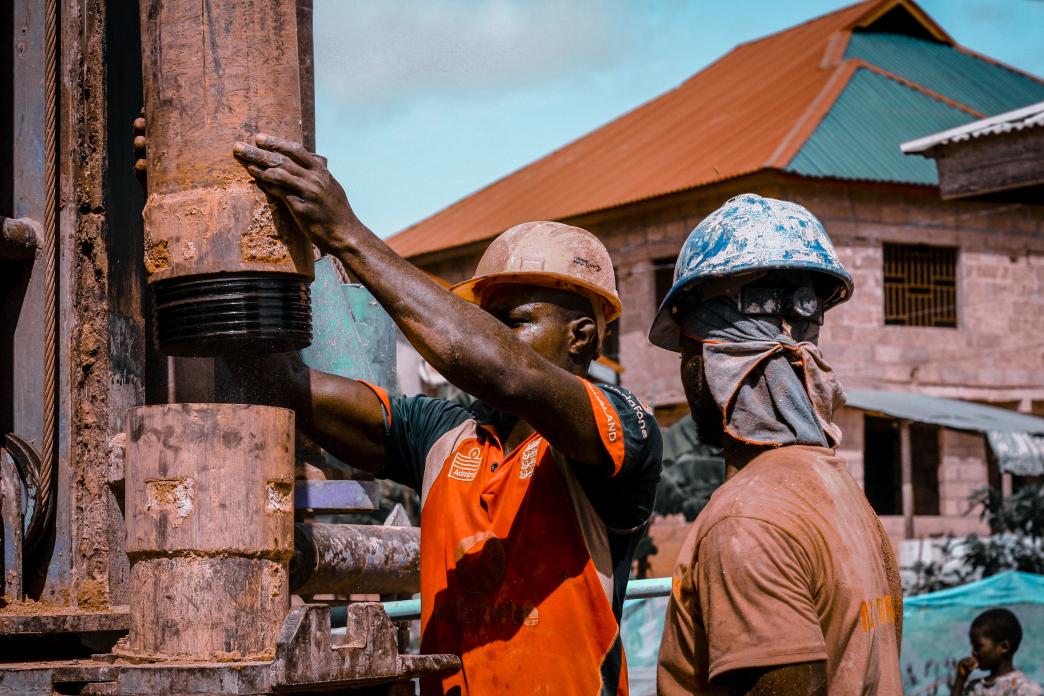
Avoiding $1.6 Billion in Debt and Making Fossil Fuel Transitions in Ghana
- In July 2021, the Ghana National Petroleum Corporation stated its intention to spend USD 1.65 billion of public money to purchase a share of undeveloped offshore oil projects held by Aker Energy, a Norwegian company.
- NRGI provided technical analysis to an alliance of civil society actors interrogating GNPC’s request, and raised questions around the value of the asset, GNPC’s capacity to jointly operate the field, and the riskiness of the investment, building on prior NRGI research including Risky Bet. This underpinned advocacy by the alliance calling for investigation and greater transparency around the transaction.
- Following persistent advocacy, the Ghanaian government reduced the value of assets in the Aker-GNPC transaction from $1.65 billion to $1.1 billion and committed to further evaluating the deal. Media investigations revealed that Bank of America had appraised the oil field’s value at $300 million.
- In May 2023, Aker returned ownership of the two offshore blocks to the Ghanaian government for a sale price of $1.
Building partnerships for united advocacy and reform
The extractive sector contributes significantly to Ghana‘s economy. Gold mining has been important for the country for over a century, and Ghanaians have more recently hoped that the country’s oil and gas assets will contribute to public revenues.
Following Aker Energy’s 2017 acquisitions in Ghana of the South Deep Water Tano (SDWT) block and a 50 percent stake in the Deep Water Tano / Cape Three Point (DWT/CTP) block, the Norwegian company dominated the policy environment. It successfully lobbied the government of Ghana to amend the governance architecture of the upstream sector. But more recently, Aker had been seeking private buyers for its stake in these offshore blocks, with no success.
NRGI and many others considered a public investment in the declining oil industry to be a risky bet
In July 2021 Ghana’s national oil company, the Ghana National Petroleum Corporation (GNPC), stated its intention to purchase a share of Aker Energy’s offshore oil projects, after Aker had failed to find any takers. The Minister of Energy submitted a memo to parliament requesting $1.65 billion for the government to finalize negotiations and acquire a 37 percent stake in DWT/CTP and a 70 percent stake in SDWT. NRGI and many others considered a public investment in the declining oil industry to be a risky bet—an accelerated energy transition would reduce the financial returns on this investment and purchasing the assets would divert funds away from programs that were potentially more socially beneficial.
NRGI’s research and technical expertise on national oil companies enabled us to support the Alliance of Civil Society Organizations (CSOs) Working on Extractives, Anti-corruption and Good Governance. We analyzed public data related to the GNPC-Aker transaction, GNPC’s past transactions, its strategic position, and emerging implications of energy transition on Ghana’s oil sector, revenue flows and economy. Concerns arose about the asset’s value, the capacity of GNPC to take on production, and the investment risk amid the transition.
NRGI provided vetted data and technical support to the allied CSOs who were then able to professionally and meaningfully engage on the issues with different stakeholders including the Ministry of Energy, parliament, GNPC, the International Monetary Fund, the World Bank, the Norwegian embassy, the media and the Ghanaian public.
Through an extensive advocacy campaign the alliance called for a halt in the transaction and for the development of a national policy on energy transition. Specifically the alliance (including NRGI) requested that the parliament fully investigate the transaction to verify the actual cost incurred by Aker to date on the blocks, clarify inconsistencies in the presentations by GNPC to Ghana’s cabinet, and allow for open consultation to provide opportunities for independent expert opinions. Alliance members engaged with the media locally and internationally, authored articles, participated in public forums, and called for government transparency regarding the deal. NRGI provided technical support for the development of communication materials and clear infographics for engaging the public. Two press statements were released in 2021 by the CSO alliance—in August and September. These were widely featured in the media in Ghana and abroad.
After 18 months of persistent campaigning, Aker Energy wrote to relinquish its interest in the SWDT block to Ghana for free. This reinforced the CSOs’ position on the risks of investment. In May, 2023 Aker Energy sold the other field to Africa Finance Corporation Equity and Investment for a token price of $1 after the former defaulted on repayment of a loan of $200 million from the latter.
Driving the energy transition agenda in Ghana
In response to the CSO advocacy demands and emerging issues, the Ghanaian government constituted the National Energy Transition Committee (NETC), hosted at the Ministry of Energy. The committee is tasked with developing an energy transition plan to inform a policy for the country and mandated to conduct a nationwide consultation with various stakeholders including CSOs and youth. GNPC and the Ghanaian government officials credited the work of NRGI and the alliance of CSOs as significant influences on the evolution of their approach and requested NRGI’s technical assistance in the development of an energy transition plan.
NRGI continues to advise GNPC and has met with company officials to provide technical support on their plans for developing a comprehensive strategy for diversification in response to the energy transition. Discussions have also addressed the importance of reviewing the law establishing GNPC to understand the governance challenges, the role of government and hindrances to a smooth transition.
In November 2023, NRGI published two reports that reference Ghana and GNPC’s exposure to transition risk—Riskier Bets, Smaller Pockets and Facing the Future—leveraging data in its National Oil Company Database.


